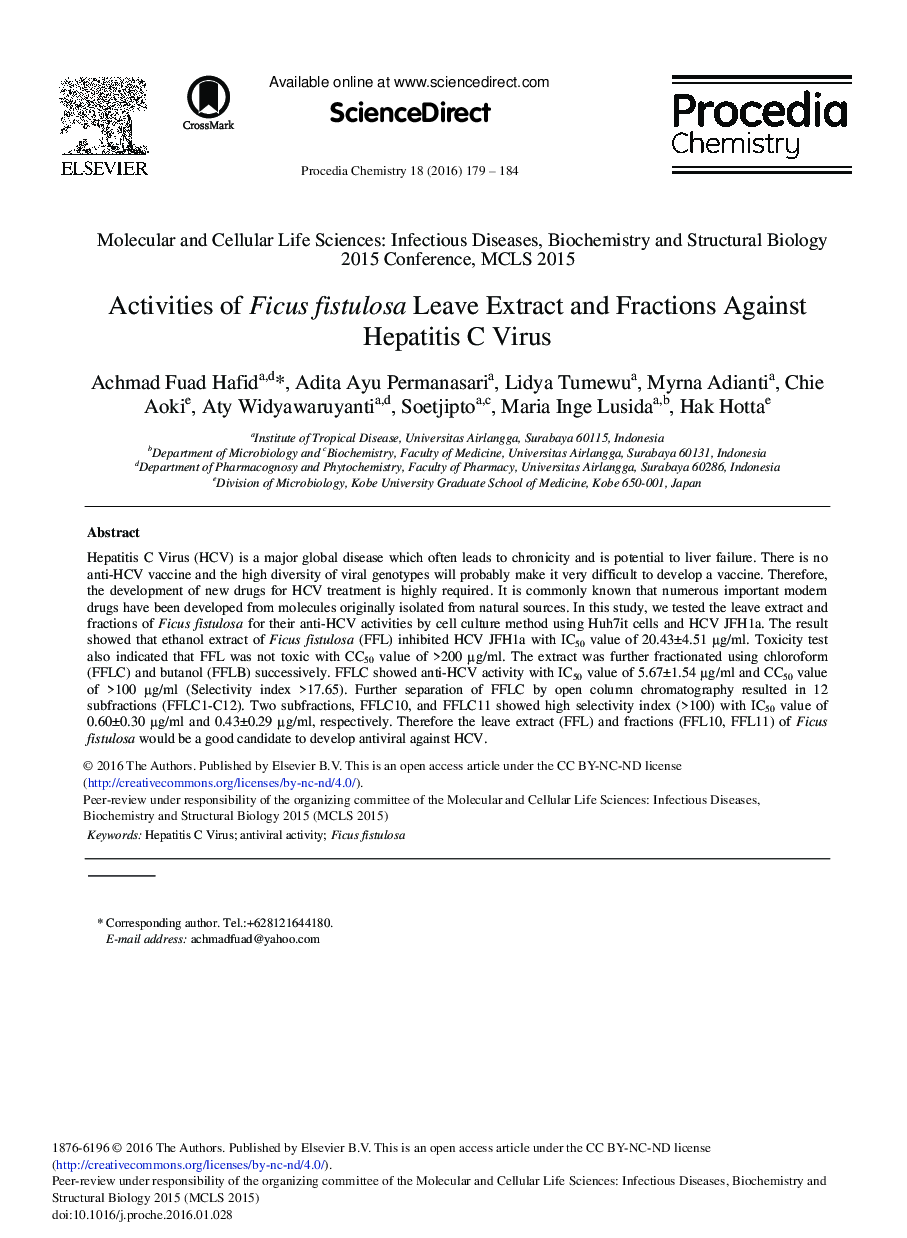| Article ID | Journal | Published Year | Pages | File Type |
|---|---|---|---|---|
| 239961 | Procedia Chemistry | 2016 | 6 Pages |
Hepatitis C Virus (HCV) is a major global disease which often leads to chronicity and is potential to liver failure. There is no anti-HCV vaccine and the high diversity of viral genotypes will probably make it very difficult to develop a vaccine. Therefore, the development of new drugs for HCV treatment is highly required. It is commonly known that numerous important modern drugs have been developed from molecules originally isolated from natural sources. In this study, we tested the leave extract and fractions of Ficus fistulosa for their anti-HCV activities by cell culture method using Huh7it cells and HCV JFH1a. The result showed that ethanol extract of Ficus fistulosa (FFL) inhibited HCV JFH1a with IC50 value of 20.43±4.51 μg/ml. Toxicity test also indicated that FFL was not toxic with CC50 value of >200 μg/ml. The extract was further fractionated using chloroform (FFLC) and butanol (FFLB) successively. FFLC showed anti-HCV activity with IC50 value of 5.67±1.54 μg/ml and CC50 value of >100 μg/ml (Selectivity index >17.65). Further separation of FFLC by open column chromatography resulted in 12 subfractions (FFLC1-C12). Two subfractions, FFLC10, and FFLC11 showed high selectivity index (>100) with IC50 value of 0.60±0.30 μg/ml and 0.43±0.29 μg/ml, respectively. Therefore the leave extract (FFL) and fractions (FFL10, FFL11) of Ficus fistulosa would be a good candidate to develop antiviral against HCV.
